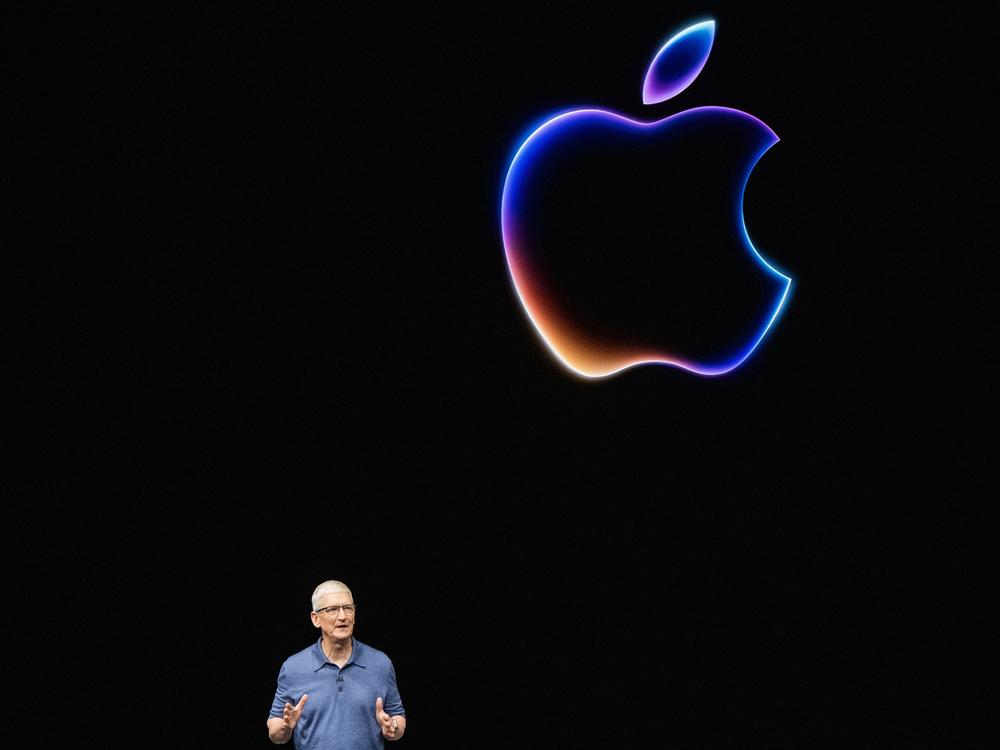Section Branding
Header Content
Apple just made your app obsolete? You've been 'Sherlocked'
Primary Content
TapeACall is one of the most popular call recording apps, with millions of users who pay a monthly fee to be able to capture a phone conversation with the click of a button.
But now the app has competition from one of the richest and most powerful companies in the world: Apple.
As part of its new operating system iOS 18, set to be released this fall, Apple will offer its own recording and transcription service seamlessly integrated into phone calls on the iPhone. The Apple service will be able to access back-end code that TapeACall, as a third-party app, cannot.
TapeACall’s annual subscription is $79.99. Apple’s new recording feature is free.
“If I was TapeACall, I’d be saying game over,” said Philip Shoemaker, a former Apple executive who used to help oversee the company's App Store.
TapeACall declined to comment. It was not the only app to be Sherlocked, as longtime observers call it.
At its worldwide developers conference in Cupertino earlier this month, Apple unveiled new services similar to writing assistant app Grammarly; password manager app 1Password; voice transcription app Otter; AI emoji app Newji; and maps app Alltrails. Its new AI-assistant features perform functions similar to briefly-buzzy AI hardware devices like the RabbitR1 and Humanity’s AI pin.
When Shoemaker was at Apple, he said he regularly fielded complaints from small app developers incensed that Apple copied their services.
“Apple has all the data they need. They can look to see what apps are being used most by their customers, and they can say, ‘Hey, that’s a great idea, let’s integrate that into our operating system, we can do a much better job,’ ” he said.
Apple has long faced complaints of ‘Sherlocking’
The practice has become known as “Sherlocking.”
It dates back to the 1990s when Apple introduced a desktop search tool called Sherlock that was strikingly similar to another desktop search program, known as Watson. Since then, the term has stuck.
When NPR reached out to several apps analysts said were Sherlocked, the app companies did not express outrage. Instead, the apps issued statements saying they welcome competition and respect Apple.
For instance, Grammarly spokeswoman Yuki Klotz-Burwell wrote in a statement: “We welcome Apple to this exciting and thriving space where we’ve been operating for over 15 years,” she wrote. “Whenever new entrants come into our market, the reality is that we see increased demand for Grammarly.”
RabbitR1 CEO Jesse Lyu told NPR: “Despite speculation and doubts from online critiques, the numbers and responses we’re seeing from our users tell quite a different story,” he said. “We're glad to see that Apple shares a similar vision for the future of AI.”
Rick VanMeter was less sanguine. He is the executive director of the advocacy group Coalition for App Fairness, which represents more than 80 popular apps, including Spotify, Match Group and Epic Games, which has been fighting Apple in court for years over practices it argues are anti-competitive.
“Many of these developers fear retaliation and are very cautious in what they say about Apple. It’s something that we unfortunately see every single day,” he said. “Apple is not only a competitor, but it also sets the rules of the marketplace.”
Former Apple exec says apps are afraid to speak out
That marketplace is the App Store. Apple is its gatekeeper. Many app developers, VanMeter said, wager that it is too risky to speak out against them, fearing possible retribution that could impact their status on the App Store.
“People are afraid of getting chopped off the App Store because they say the wrong thing or do the wrong thing,” Shoemaker said.
Some companies have fought back and sued Apple, but Shoemaker said the more common strategy is to say nothing at all. The Sherlocked app often pivots to another service, or even goes out of business entirely, he said.
“Third-party companies do not want to bite the hand that feeds them because they are the only method, for the most part, of getting an app onto your device,” Shoemaker said.
Apple ascended to tech titan status through billions of dollars of its own research and development, but it also has benefitted from ideas inspired by the products and services of other companies.
Apple co-founder Steve Jobs famously said, “We have always been shameless about stealing great ideas.”
Apple did not return a request for comment, but the company has previously said that it welcomes healthy competition, and going toe-to-toe improves services for everyone.
Apple outreach considered ‘kiss of death’
John Gruber, the tech writer behind the blog Daring Fireball who has covered Apple for more than two decades, and who often defends the company, said Apple is merely being cutthroat.
“The truth is, Apple, like any successful company, plays hardball,” Gruber said.
And it is not just Apple, he said.
Smaller companies with clever and popular ideas always risk having their service copied by a larger tech company.
“It’s just the way the software industry works, historically,” Gruber said.
Some small app developers have become fearful even of outreach from Apple ever since the experience of medical tech company Masimo burst into public view in a patent dispute.
Masimo claims Apple held meetings with them about potentially incorporating Masimo’s pulse-reading technology onto iPhones. When the discussions broke down, Apple hired two executives away from Masimo and introduced a service that Masimo claims illegally duplicated its technology. Apple denies this.
Aspiring Apple partners have cited the Masimo experience as a cautionary tale.
“When Apple takes an interest in a company," Masimo chief executive Joe Kiani told the Wall Street Journal, “it’s the kiss of death."

